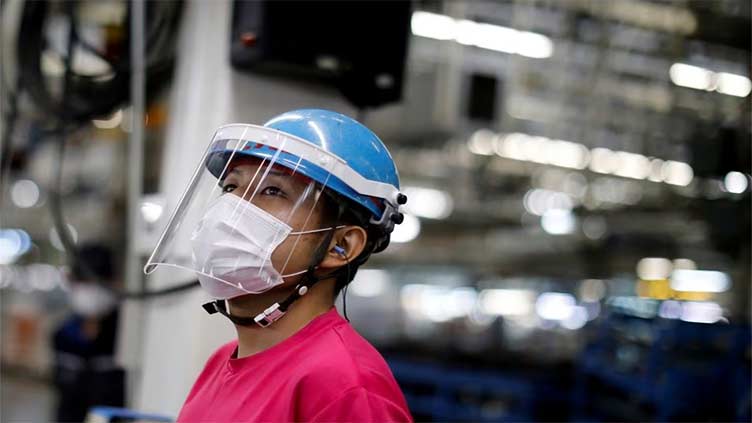Asia's factory activity contracts despite China's Covid reopening

Business
Asia's factory activity contracts despite China's Covid reopening
TOKYO, (Reuters) - Asia’s factory activity contracted in January as the boost from China’s Covid reopening had yet to offset headwinds from slowing US and European growth, surveys showed on Wednesday, underscoring the fragility of the region’s economic recovery.
China’s factory activity shrank more slowly in January after Beijing lifted tough Covid curbs late last year, a private sector survey showed.
Softening input-price pressures also offered initial positive signs for Asia, with the pace of contraction in output slowing in Japan and South Korea, the surveys showed.
But there is uncertainty about whether Asia can weather the hit from slowing global demand and stubbornly high inflation, some analysts say.
"The worst of Asia’s downturn is behind, but the outlook is clouded by weaknesses in major export destinations like the United States and Europe," said Toru Nishihama, chief economist at Dai-ichi Life Research Institute in Tokyo.
"With the recovery from Covid-19 under way, Asian economies need a new growth engine. There isn’t one so far."
China’s Caixin/S&P Global manufacturing purchasing managers’ index (PMI) nudged up to 49.2 in January from 49.0 in the previous month, staying below the 50 mark that separates growth from contraction for a sixth straight month.
The data was contrasted with a better-than-expected official PMI survey issued on Tuesday. But whereas the official PMI largely focuses on big and state-owned Chinese businesses, the Caixin survey centres on small firms and coastal regions.
Japan’s au Jibun Bank PMI stood at 48.9 in January, unchanged from the previous month, as manufacturers felt the pain from weak global demand.
But supplier delays were less prevalent than at any time since February 2021, while input and output price inflation were the slowest in 16 months, the Japan PMI survey showed.
South Korea’s factory activity contracted for a seventh straight month in January. The reading was 48.5, up from 48.2 in December but below the 50-point-threshold.
While new orders in South Korea shrank for a seventh straight month in January, the rate of decline was slightly slower than a month earlier, the survey showed.
"The immediate outlook for the South Korean manufacturing sector appears challenging," said Usamah Bhatti, economist at S&P Global Market Intelligence.
"That said, firms remained confident that global economic conditions would improve and stimulate demand."
Factory activity expanded in January in Indonesia and the Philippines but shrank in Malaysia and Taiwan, PMI surveys showed.
The International Monetary Fund on Tuesday slightly raised its 2023 global growth outlook on "surprisingly resilient" demand in the United States and Europe and the reopening of China’s economy after Beijing abandoned its strict pandemic controls.
But the IMF said global growth would still slow to 2.9% in 2023 from 3.4% in 2022, and it warned that the world could easily tip into recession.

